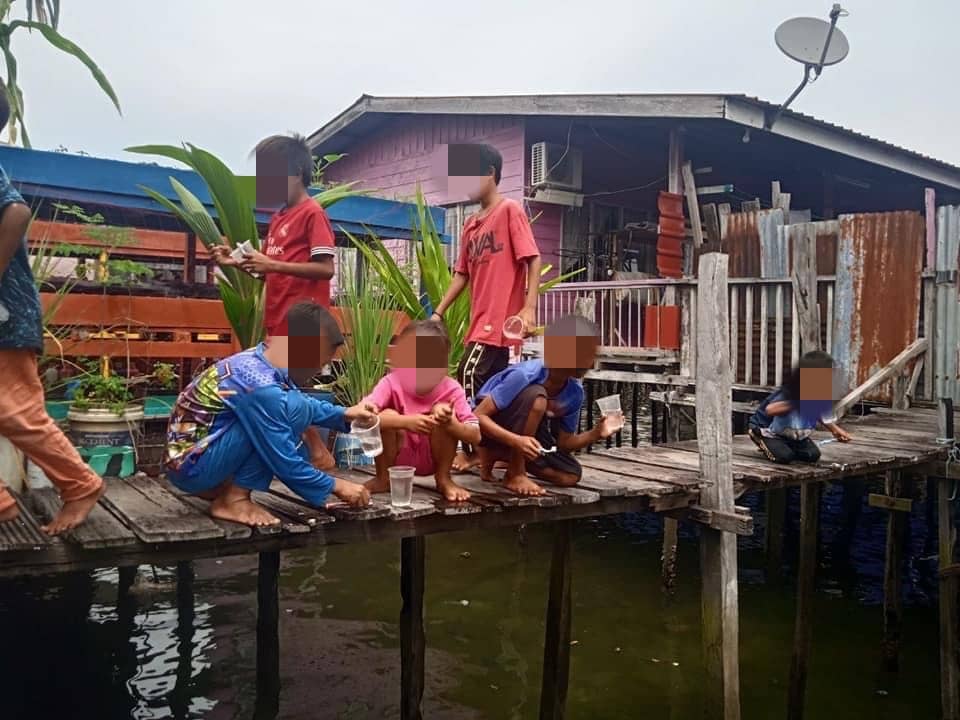On island paradise, teachers work to stop stateless children from sniffing glue
Prevented from attending public schools due to their lack of documentation, only a handful of these children are finding refuge at a special school for stateless students.
Just In
In a modest classroom in the island paradise of Semporna in Sabah, Siti Syamaika Abdullatif welcomes a new batch of students at the start of a school session.
Groups of pupils, some of them as young as six, trickle in, excited to open their books and start learning.
These are no ordinary students, and Sekolah Pemulihan Gam is no ordinary school.
Launched under a student activist initiative known as Sekolah Alternatif, it caters to stateless children in Sabah who would otherwise go their entire lives without any formal education.
In Semporna alone, famous for its marine life and crystal clear water, there are thousands of stateless children, many of whom were abandoned by their parents. A large number of them are from the Bajau Laut community or rural villages far from towns.
In small towns especially, they sit in groups, wearing worn-out clothes and begging for money.
Across Sabah as a whole, there are an estimated 50,000 stateless children of Indonesian and Filipino descent. The numbers bear testimony to the problem of statelessness in Sabah and the social issues that arise because of this.
Speaking in an interview with MalaysiaNow, Syamaika said it was common to see children sniffing glue – a practice normalised by friends, neighbours and even family members.
“It’s as big as any drug issue,” she said. “People are selling glue to children for 20 to 50 sen a bag. They also provide huts for these children to sniff the glue in.”
And it appears to be a lucrative business. Sellers can buy more than a litre of glue for a few ringgit and make a killing by peddling it among children.
At Sekolah Pemulihan Gam, one of the aims is to keep stateless children off the streets and away from such people.
This is no easy task as the habit is also fuelled by deep-rooted issues like poverty and hunger.
Many of the children who fall into the practice are from poor families whose parents cannot afford to put food on the table. For them, sniffing plastic glue is a way to get high and forget their hunger for just a few hours.
“Some children who cannot go to school are paid RM5 by glue sellers to monitor the roads and alert them if there are police about,” Syamaika added.

These problems and more are linked to the fundamental issue of statelessness – without official documents or proof of citizenship, none of these children will ever be able to attend a public school.
Speaking in an interview with MalaysiaNow, Sekolah Pemulihan Gam co-founder Mukmin Nantang said the teachers, many of whom were once students of Sekolah Alternatif themselves, do the best they can.
In addition to academic subjects, they teach the children the importance of basic hygiene like washing their hands, brushing their teeth and cutting their nails.
“We also have acting and music classes to make things exciting and enjoyable for them,” he said.
But for all of their effort, the school can only take in a maximum of 70 students out of the thousands roaming the streets with bags of glue in their hands.
Mukmin said there had been little initiative on the part of the state government to help tackle the issue.
“Statelessness is not in politicians’ best interest,” he said. “This issue is still in the dark because there is a lack of public pressure.”
Still, the teachers continue to do what they can with the resources they have at hand. The biggest challenge for them is ending the children’s addiction to glue – a tricky business as many are likely to relapse.
But for them, any amount of effort would be worth the cost if it helps keep children safe in the classroom and away from social ills.
Subscribe to our newsletter
To be updated with all the latest news and analyses daily.



